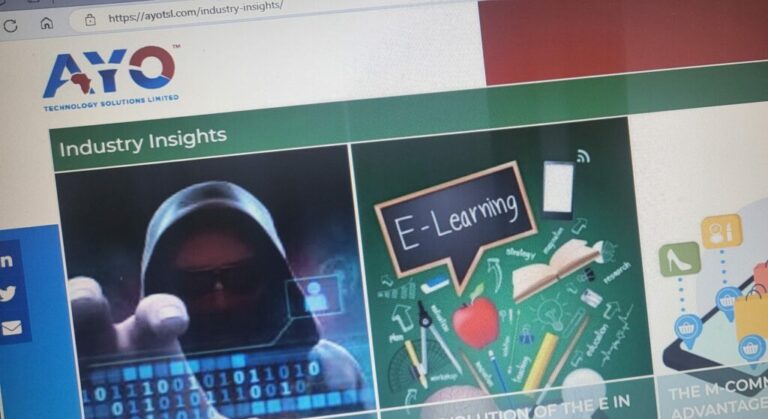JSE-listed Ayo Technology Solutions is facing an uncertain future. Results for the year to the end of August show that losses more than doubled from approximately R267 million in the previous financial year to nearly R644 million in FY2023.
More seriously, the cash flow statement shows that the group needed a cool R1 billion cash to fund its operations. This means that Ayo has used the last of the R4.3 billion it raised from the Public Investment Corporation (PIC) and the Government Employees Pension Fund (GEPF) at the time of its controversial listing in 2017.
ADVERTISEMENT
CONTINUE READING BELOW
Read: PIC board berates handling of Ayo settlement, but says deal is ‘justified’
According to its cash flow statement, Ayo had less than R190 million in cash at the end of it financial year compared to R1.1 billion a year ago.
There is probably nothing left now, given the rate at which the group has been burning cash in the last few years.
Share repurchase
In addition, the financial statements show that Ayo still has not effected the repurchase of shares from the GEPF in terms of a R620 million settlement agreement between Ayo and the PIC.
The settlement was reached after the PIC and GEPF took legal steps to recoup the R4.3 billion after allegations of improper conduct at the time of the original investment in 2017.
Ayo confirmed in the announcement of its latest results that the settlement which provides that Ayo would repurchase 17.2 million of the shares issued to GEPF was made an order of court on 24 of March 2023.
However, the results announcement, sighed off by CEO Amit Makan, says that the repurchase of shares still needs shareholder approval.
“The initial specific repurchase requires, inter alia, the approval by at least 75% of the votes cast in favour thereof by Ayo shareholders at a general meeting of shareholders. Accordingly, the transfer of the initial repurchase shares from Ayo will take place following the approval of the initial specific repurchase by shareholders in a general meeting yet to be convened,” notes Makan.
Read:
The ‘high dividend’ stocks that look set to disappoint
Ayo and PIC settlement ‘confidential’ for now
Former Ayo exec, AEEI director handed JSE censure and R250K fine
The balance sheet shows no liability for the R620 million, and the cash flow statement does not disclose any share repurchase.
Management’s commentary to the results indicates that Ayo had an unpleasant year. “A subdued economic environment post Covid-19, in addition to the continued negative publicity and ongoing banking challenges facing the group has constrained the group’s organic growth initiatives as a result of lack of access to funding due to the company not being able to provide financial assistance as the resolution was not approved by shareholders, and its ability to complete significant acquisitions,” it says.
Extensive legal challenges
A few pages further it lists the group’s problems. It says it is facing “extensive legal challenges”, which Ayo is “confronting simultaneously, together with the ongoing negative media focus on the group and heightened regulatory attention”, “putting the business to a serious test, potentially threatening its longevity”.
ADVERTISEMENT
CONTINUE READING BELOW
“Whilst these prolonged processes are straining Ayo’s financial and human resources, forcing its operational focus and impeding its ability to concentrate on the strategic mandate management is set to deliver on, it is important for shareholders to understand that some of these litigious matters were necessary to proceed with to ensure long-term sustainability and protect underlying investments of the group,” it says.
Read: Sekunjalo group fights to keep bank accounts open
One of its legal challenges is that the State Information Technology Agency (Sita) has brought an application in the Eastern Cape High Court for an order to interdict the Eastern Cape Department of Education from continuing with a contract it entered into with Ayo subsidiary, Sizwe Africa IT, for the supply and lease of tablets to matric learners in the Eastern Cape.
“The Eastern Cape High Court granted the order for the interdict. Legal experts are of the opinion that Sizwe must provide for a potential loss, being the profit that was made from components of the deal. Therefore, management has made an estimate and raised the provision for the amount. The parties are in negotiation to reach settlement,” says management.
Then there are various legal battles with nearly all the banks in SA and requests to the Competition Commission to intervene – because none of the banks wants Ayo as a client.
Ayo’s holding company, JSE-listed investment group African Equity Empowerment Investments (AEEI), also broke ties with Ayo. AEEI announced in July 2023 that it has unbundled its Ayo shares and is no longer a shareholder since, with the implication that Ayo cannot look there for support.
AEEI had an interest of 49.4% in Ayo. It said at the time that AEEI representatives on the Ayo board of directors will step down in due course.
Going concern
The auditor’s review of Ayo’s results to the end of August 2023 sums up the group’s dilemma: “We draw attention to Note 3 of Governance Matters in the provisional condensed financial statements, which indicates events and conditions, along with other matters as set forth in Note 3, which indicate that a material uncertainty exists that may cast significant doubt on the company’s ability to continue as a going concern.”
Ayo’s share price is quoted at 90 cents with a few bids for a total of 5 900 shares at 70 cents and 65 000 offered at 89 cents – a far cry from the valuation of R43 per share at the time of its listing in 2017. The group’s current market cap on the JSE is just under R310 million.

